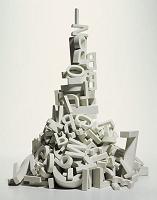| Pages in topic: [1 2] > | Poll: What parts of speech do you most frequently look up in the dictionary? Thread poster: ProZ.com Staff
|
|---|
This forum topic is for the discussion of the poll question "What parts of speech do you most frequently look up in the dictionary?".
This poll was originally submitted by Mueen Issa
View the poll here
A forum topic will appear each time a new poll is run... See more This forum topic is for the discussion of the poll question "What parts of speech do you most frequently look up in the dictionary?".
This poll was originally submitted by Mueen Issa
View the poll here
A forum topic will appear each time a new poll is run. For more information, see: http://proz.com/topic/33629 ▲ Collapse
| | | | | Names of things! | May 3, 2007 |
This is the area where my vocabulary experiences significant growth (in all of languages, not excluding the mother tongue) - verbs occasionally, adjectives likewise.
And I´m happy that I have to continue looking things up. A word new to me can be better than a good number of the gifts I receive in fancy paper!
Shame that a lot of the new jargon/meanings isn´t so attractive - hate the use of "robust" nowadays, for example, which I feel has been kidnapped. Probably so... See more This is the area where my vocabulary experiences significant growth (in all of languages, not excluding the mother tongue) - verbs occasionally, adjectives likewise.
And I´m happy that I have to continue looking things up. A word new to me can be better than a good number of the gifts I receive in fancy paper!
Shame that a lot of the new jargon/meanings isn´t so attractive - hate the use of "robust" nowadays, for example, which I feel has been kidnapped. Probably something to do with anno domini! ▲ Collapse
| | | | TrueBaller 
Local time: 11:46
Albanian to English
+ ...
Hello, everyone!
Mueen, thanks for your poll idea. It is always good to hear and learn new things.
Honestly, I am kind of surprised to see that till now the majority participating in the poll have responded to "looking for nouns". I always start looking for a word from the verb. I don't know why but I do feel that it is easier this way and it gives me the complete picture of all possible meanings a word can have, noun(s) deriving from it, prepositions it often is asso... See more Hello, everyone!
Mueen, thanks for your poll idea. It is always good to hear and learn new things.
Honestly, I am kind of surprised to see that till now the majority participating in the poll have responded to "looking for nouns". I always start looking for a word from the verb. I don't know why but I do feel that it is easier this way and it gives me the complete picture of all possible meanings a word can have, noun(s) deriving from it, prepositions it often is associated with, etc. I think that after knowing/ learning the verb it is much easier to find the nouns which often are more than one. Well, maybe it is just me and the way I was taught languages since I can remember...
Thanks for sharing your thoughts on this. I look forward to what others have to say.
Wishing you all a great day!
[Edited at 2007-05-03 17:14] ▲ Collapse
| | | | Reed James
Chile
Local time: 12:46
Member (2005)
Spanish to English
| A person, place or thing... | May 3, 2007 |
Or so I was taught in elementary school. Nouns play such a key role in translation. After that, I would say adverbs adjectives and verbs.
Of course, in a way, we translators are looking up words of all parts of speech when looking up and down, as context is essential if we are to understand anything. We are indirectly looking up other words in sentences that we may already know, but their meanings are influenced by the word we are looking up and vice versa.
[Edited at 2007-... See more Or so I was taught in elementary school. Nouns play such a key role in translation. After that, I would say adverbs adjectives and verbs.
Of course, in a way, we translators are looking up words of all parts of speech when looking up and down, as context is essential if we are to understand anything. We are indirectly looking up other words in sentences that we may already know, but their meanings are influenced by the word we are looking up and vice versa.
[Edited at 2007-05-03 19:23] ▲ Collapse
| | |
|
|
|
Nesrin 
United Kingdom
Local time: 16:46
English to Arabic
+ ...
| Technical nouns... | May 3, 2007 |
By far more than anything else: names of machinery, machine components, soft- and hardware related terms, followed by financial and legal terms (usually nouns as well)
| | | | Nikki Graham 
United Kingdom
Local time: 16:46
Spanish to English
Actually, like the majority of the poll answerers so far, I look up nouns most often (especially technical vocab), but in my personal lists on my PC and not in dictionaries. I also have an extensive list of verbs and possible ideas for translating them on my computer too, so it's the adjectives that I may need some help with, especially when the first thing to spring to mind sounds desperately corny or Spanglish.
| | | | neilmac
Spain
Local time: 17:46
Spanish to English
+ ...
... then verbs. I can't remember the last time I looked up anything else. One of the things I find proz most useful for is finding synonyms for terms, or standard terms from different countries/zones.
Re Ace's comment about "robust", I think that it's the overuse of this type of buzzword that really makes them lose their original cachet. There was an amusing section in a March issue of Private Eye about "solutions", with some real gems, such as "XXX offers total solutions in... See more ... then verbs. I can't remember the last time I looked up anything else. One of the things I find proz most useful for is finding synonyms for terms, or standard terms from different countries/zones.
Re Ace's comment about "robust", I think that it's the overuse of this type of buzzword that really makes them lose their original cachet. There was an amusing section in a March issue of Private Eye about "solutions", with some real gems, such as "XXX offers total solutions in water management systems" (drains); or "XXXX Digital Imaging Solutions" (cameras); or "Product solutions for inkjet printers" (paper and ink). But I'm straying from the poll subject again so I'd better log off... ▲ Collapse
| | | | Heidi C 
Local time: 11:46
English to Spanish
+ ...
| Collocations and phrases | May 4, 2007 |
I generally check collocations: which preposition goes with what, which verb is used with a certain noun...
Also, phrases: idiomatic, usual, etc.
I constantly feel I have to check and make sure I am not copying incorrectly from one language to another.
| | |
|
|
|
Giles Watson 
Italy
Local time: 17:46
Italian to English
In memoriam | Dictionaries and other resources | May 4, 2007 |
Heidi C wrote:
I generally check collocations: which preposition goes with what, which verb is used with a certain noun...
Nikki Graham wrote:
it's the adjectives that I may need some help with, especially when the first thing to spring to mind sounds desperately corny or Spanglish.
The concordance function of a CAT tool can be invaluable for checking collocations and more generally for digging out your past flashes of brilliance, provided of course that your translation memories are largish and decently organised (you'll get better leverage, as well as rates, if you stick to translating specialised subjects).
Roget's Thesaurus is still one of my favourite memory-jogging reference tools and Google (perhaps with a little judicious domain filtering), the online British National Corpus and other similar resources are great for checking collocations.
Otherwise, the dictionaries I use most are technical ones and I probably use them to look up more nouns than other parts of speech.
Cheers,
Giles
| | | | | Different types of searches | May 4, 2007 |
- I look up nouns if the words are not in my vocabulary.
- I look up verbs for their multiple meanings, to see which one fits best - the Martinez Amador dictionary in Spanish had rich selection of alternatives.
- And I look up prepositional phrases to mak sure I've caught the correct nuance for the context.
| | | | Mark Nathan 
France
Local time: 17:46
Member (2002)
French to English
+ ...
Nouns are the obvious answer but I like to think that all parts of speech have equal rights!
Perhaps at the same time we should ask "which are the most difficult parts of speech to look up?" - but I suppose that as online databases develop the idea of anything being difficult to look up should just disappear.
| | | |
neilmac wrote:
... then verbs. I can't remember the last time I looked up anything else. One of the things I find proz most useful for is finding synonyms for terms, or standard terms from different countries/zones.
Re Ace's comment about "robust", I think that it's the overuse of this type of buzzword that really makes them lose their original cachet. There was an amusing section in a March issue of Private Eye about "solutions", with some real gems, such as "XXX offers total solutions in water management systems" (drains); or "XXXX Digital Imaging Solutions" (cameras); or "Product solutions for inkjet printers" (paper and ink). But I'm straying from the poll subject again so I'd better log off...
But straying from the subject is probably exactly why we have acquired the bulk of knowledge necessary to be translators! (Must try and get hold of that Eye!)
| | |
|
|
|
Anthony Baldwin 
United States
Local time: 11:46
Portuguese to English
+ ...
At least it´s not articles or pronouns....
| | | | John Cutler 
Spain
Local time: 17:46
Spanish to English
+ ...
| Mostly nouns but... | May 4, 2007 |
To tell the truth, I’d never really thought of it.
I suppose for me it would be nouns (chemical names) and mostly to check the English spelling of words like: 4-hydroxymethyl-1,3-dioxolane or other tongue twisters of that nature.
Verbs would be next. Because they’re generally “action words”, they can imply so many different things.
| | | | Buzzy
Local time: 17:46
French to English
| I'm intrigued by the number of N/A responses | May 4, 2007 |
Don't these people ever look anything up? If so, should I be impressed or appalled?
Or is it that they don't use paper dictionaries? Can anyone enlighten me, please?
| | | | | Pages in topic: [1 2] > | To report site rules violations or get help, contact a site moderator: You can also contact site staff by submitting a support request » Poll: What parts of speech do you most frequently look up in the dictionary? | Trados Studio 2022 Freelance | The leading translation software used by over 270,000 translators.
Designed with your feedback in mind, Trados Studio 2022 delivers an unrivalled, powerful desktop
and cloud solution, empowering you to work in the most efficient and cost-effective way.
More info » |
| | Anycount & Translation Office 3000 | Translation Office 3000
Translation Office 3000 is an advanced accounting tool for freelance translators and small agencies. TO3000 easily and seamlessly integrates with the business life of professional freelance translators.
More info » |
|
| | | | X Sign in to your ProZ.com account... | | | | | |

















